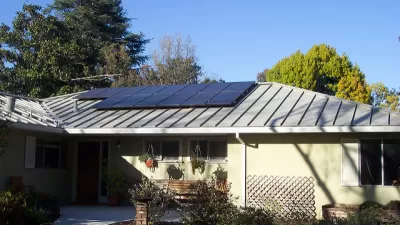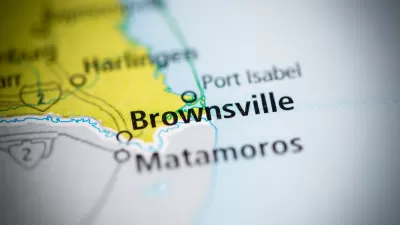AI-powered permitting is accelerating solar deployments in cities across California, automating compliance checks and approvals for efficient and rapid solar project installations.

An article from Canary Media delves into the revolutionary impact of AI-powered permitting on expediting solar deployments in California. Particularly, a Stanford-led team has deployed its computational law technology to play a pivotal role in revolutionizing the permitting process for solar projects. By harnessing the power of artificial intelligence, regulatory checks are streamlined, resulting in swift approvals and accelerated solar installations. This technological innovation not only addresses bureaucratic challenges but also significantly enhances the overall efficiency of the permitting system.
In the context of California's commitment to clean energy, the integration of AI in permitting reflects a progressive step towards achieving renewable energy goals. These innovations in AI-powered solutions, as applied to planning and building, mitigate public confusion around regulatory complexities, eliminate friction at the counter, and ultimately facilitate a more rapid and seamless transition to sustainable energy practices in the state.
FULL STORY: AI-powered permitting is speeding up solar deployments in California

Alabama: Trump Terminates Settlements for Black Communities Harmed By Raw Sewage
Trump deemed the landmark civil rights agreement “illegal DEI and environmental justice policy.”

Planetizen Federal Action Tracker
A weekly monitor of how Trump’s orders and actions are impacting planners and planning in America.

The 120 Year Old Tiny Home Villages That Sheltered San Francisco’s Earthquake Refugees
More than a century ago, San Francisco mobilized to house thousands of residents displaced by the 1906 earthquake. Could their strategy offer a model for the present?

LA’s Tree Emergency Goes Beyond Vandalism
After a vandal destroyed dozens of downtown LA trees, Mayor Karen Bass vowed to replace them. Days later, she slashed the city’s tree budget.

Sacramento Leads Nation With Bus-Mounted Bike Lane Enforcement Cameras
The city is the first to use its bus-mounted traffic enforcement system to cite drivers who park or drive in bike lanes.

Seattle Voters Approve Social Housing Referendum
Voters approved a corporate tax to fund the city’s housing authority despite an opposition campaign funded by Amazon and Microsoft.
Urban Design for Planners 1: Software Tools
This six-course series explores essential urban design concepts using open source software and equips planners with the tools they need to participate fully in the urban design process.
Planning for Universal Design
Learn the tools for implementing Universal Design in planning regulations.
Ada County Highway District
Clanton & Associates, Inc.
Jessamine County Fiscal Court
Institute for Housing and Urban Development Studies (IHS)
City of Grandview
Harvard GSD Executive Education
Toledo-Lucas County Plan Commissions
Salt Lake City
NYU Wagner Graduate School of Public Service




























